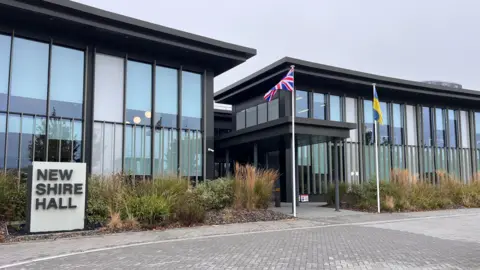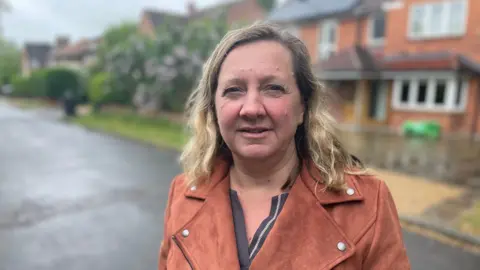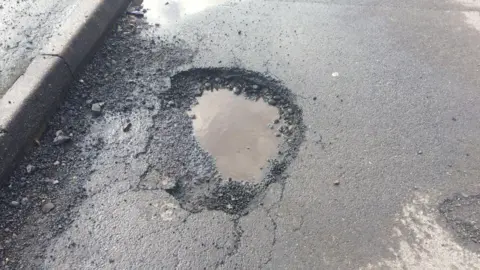County council elections: What you need to know
 MARTIN GILES/BBC
MARTIN GILES/BBCCouncil election season has come around again and this year's polls are particularly significant.
They are the first since Labour was elected into government and will be seen as a temperature check on the party's first 10 months in office.
They could, meanwhile, be the last while the county's councils exist in their current form due to a planned overhaul of local democracy.
On top of that, there are both county council and mayoral elections in Cambridgeshire on 1 May, each of which only come around once every four years.
Read on for all you need to know about this year's Cambridgeshire County Council elections.
What is the current makeup of the council?
The Liberal Democrats, Labour and a small number of independent councillors make up the county council's current administration.
They joined forces because no single party holds a majority of council seats.
The Lib Dems are the biggest single group, with 23 councillors. The authority is led by one of them, Lucy Nethsingha.
 BEN SCHOFIELD/BBC
BEN SCHOFIELD/BBCJust behind them in terms of numbers are the Conservatives, with 22 councillors. There are also three independents, who are not a part of the council's administration.
Before the most recent elections, the council was led by the Conservatives.
What political issues will be at play?
This year's local elections are the first since the general election, which saw Labour enter government for the first time in 14 years.
Local voting behaviour is often taken as a temperature check of a national party's popularity, but even more so when there is major change in government.
The Conservatives lost over 400 council seats last year as public favour generally shifted towards Labour and the Lib Dems.
Meanwhile, local politicians will campaign on everything from transport policy to housing to potholes.
What does the council do?
The county council is responsible for education, highways, libraries, social care, public health and waste disposal.
It is also where to go to register a birth, death or marriage, as well as for fostering children, setting up home to school transport and for special educational needs and disability (Send) services.
The council is made up of council officers and executives who are responsible for its day-to-day running, as well as 61 councillors who direct policy and meet directly with constituents.
It pledged to spend £1bn on essential services this year including maintaining highways and social care. It also said it would sell properties and increase its share of council tax.
 JOHN DEVINE/BBC
JOHN DEVINE/BBCCambridgeshire has five district councils (East Cambridgeshire, Fenland, Huntingdonshire and South Cambridgeshire) which are responsible for housing, planning decisions and rubbish collection. The fifth is Cambridge City Council.
Peterborough City Council, meanwhile, is a unitary authority like the county council, but also takes on the duties of a district council.
All seven councils are members of the Cambridgeshire and Peterborough Combined Authority (CPCA), led by a directly-elected mayor, which takes on county-wide transport and infrastructure projects.
There are also town and parish councils, as well as other bodies such as the Greater Cambridge Partnership (GCP) which is responsible for delivering government-funded growth projects.
The government says it wants to simplify local democracy by asking upper and lower tier authorities to combine into unitary authorities.
When will I hear the election results?
The results will be announced on the afternoon of 2 May.
Polling takes places on 1 May. You must bring a valid form of photo ID to the polling station if voting in person and be registered to vote.
The deadline to register to vote is 11 April. The full list of election candidates will be announced in the first week of April.
Cambridgeshire will also elect a new mayor on 1 May.
Follow Cambridgeshire news on BBC Sounds, Facebook, Instagram and X.
